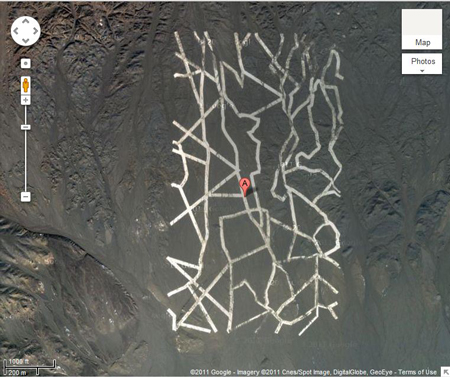Hackers destroyed a pump used by a US water utility after gaining unauthorized access to the industrial control system it used to operate its machinery, a computer security expert said.
Joe Weiss, a managing partner for Applied Control Solutions, said the breach was most likely performed after the attackers hacked into the maker of the supervisory control and data acquisition software used by the utility and stole user names and passwords belonging to the manufacturer’s customers. The unknown attackers used IP addresses that originated in Russia.

Weiss cited an official government report from the state where the regional water district was located. It was dated November 10, two days after the hack was discovered. The document indicates that the utility had been experiencing unexplained problems with its computerized system in the weeks leading up to the breach.
“Over a period of two to three months, minor glitches had been observed in remote access to the water district’s SCADA system,” Weiss said during an interview, in which he read a verbatim portion of the document to The Register. He said that the attackers were able to burn out one of the utility’s pumps by causing either the pump or the SCADA system that controlled it to turn on and off “repeatedly.”
Weiss said he obtained the report on the condition that the water utility and the state where it’s located aren’t disclosed. He published bare-bones details of the hack on Thursday because he wanted to bring attention to an incident he said raised serious concerns about the ability of the US government to secure critical infrastructure.
“This is really a big deal, and what’s just as big a deal is what isn’t being said or isn’t being done,” Weiss said. “What the hell is going on with DHS? Why aren’t people being notified?”
He said he’s unaware of any water utilities or other SCADA operators who know about the attack.
The Register was unable to verify the claims in the report, and Department of Homeland Security officials didn’t immediately respond to a request for comment. A security researcher with no affiliation to Weiss said there was no obvious reason to doubt the attack took place as described.
“It’s not surprising,” said Rick Moy, President and CEO of NSS Labs. “These things are connected to the internet in ways they shouldn’t be. It’s very plausible.”
Over the past few years, the vulnerability of the control systems used to operate power plants, gas refineries, and other industrial systems has been underscored by a variety of events. Chief among them was the Stuxnet computer worm that infiltrated SCADA systems in Iran and disrupted that country’s nuclear program. Earlier this year, security researcher Dillon Beresford disclosed bugs in widely used control systems that he said were “far reaching and affect every industrialized nation across the globe.”
More recently, researchers discovered highly sophisticated malware dubbed Duqu had infiltrated at least eight industrial facilities throughout the world by exploiting a previously unknown vulnerability in Microsoft Windows. Some researchers say it was created by people with close ties to Stuxnet.
Weiss said the possibility that attackers of the water utility obtained passwords for multiple customers of the SCADA manufacturer left open the possibility that other industrial facilities are also susceptible or may already have been breached. Many industrial control systems rely on passwords that are hard-coded, making it difficult to change stolen passcodes without causing serious problems.
Weiss said the objectives and identities of the attackers remain a mystery. Possibilities could include a nation state doing reconnaissance, recreational hackers looking for laughs, or a criminal gang setting up an elaborate extortion scheme.
“Until you find who did it, there’s no way to know what the motive is,” he said. ®
Follow @dangoodin001 on Twitter.
Article source: http://go.theregister.com/feed/www.theregister.co.uk/2011/11/17/water_utility_hacked/

